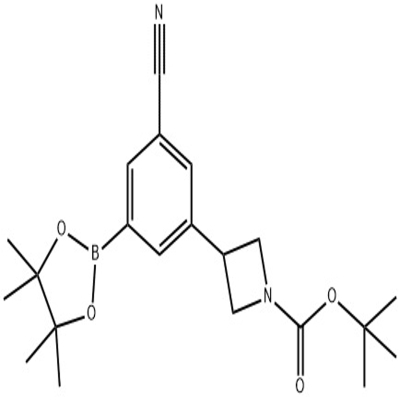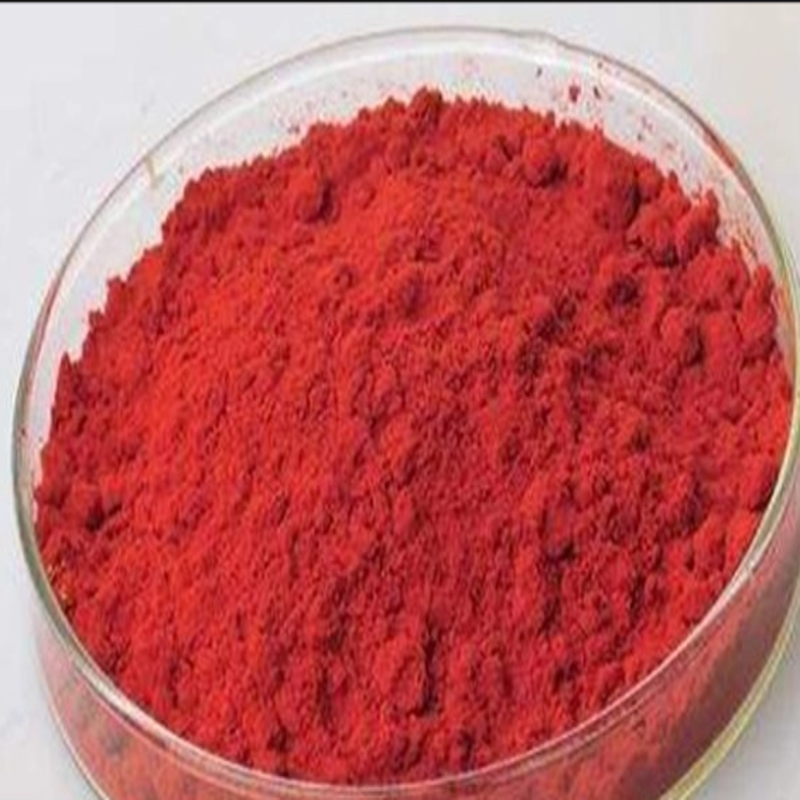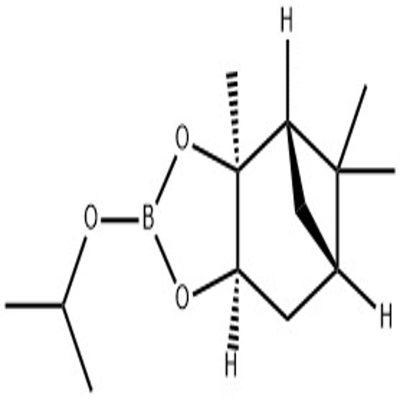FDA Approves Latest Results for Opdivo Treatment of ESCC Blueprint Precision Kinase Inhibitors
-
Last Update: 2020-07-09
-
Source: Internet
-
Author: User
Search more information of high quality chemicals, good prices and reliable suppliers, visit
www.echemi.com
Blueprint Medicines presented the latest results of the company's precision protein kinase inhibitor Ayvakit (avapritinib), at the 2020 European Society for Allergy and Clinical Immunology (EAACI), in the treatment of patients with inert systemic hypertrophy (SM)The results showed that avapritinib was able to significantly improve skin symptoms in SM patientsAvapritinib has been fda-approved to treat adult patients with gastrointestinal interstitial (GIST) who carry PDGFRA exon 18 mutations, including the PDGFRA D842V mutationAvapritinib also has a strong specific inhibitory effect on KIT D816VKeystone Pharmaceuticals has acquired the rights to clinical development and promotion of avapritinib in Greater ChinaPIONEER is a phase 2 clinical trial that is randomized double-blind, with a placebo-controlled, allowing registration studies to assess the efficacy of avapritinib in patients with inert SMThe trial consists of three parts: the first part is the dose exploration part, the second part is the registered study, and the third part is the long-term treatment studyThe publication is the first part of the studytrial results showed that after 24 weeks of treatment, patients in the avapritinib treatment group had a 60 percent remission rate (the relief was defined as a reduction of more than 30 percent in the overall symptom score) and the remission rate in the control group was 0 percentIn addition, a variety of other methods of symptom detection have consistently detected the efficacy of avapritinibbased on these data and FDA feedback, Blueprint Medicines has selected the 24-week mitigation rate as the primary endpoint in the pre-enrolled PIONEER clinical trialThe second part plans to register about 200 patients, and initial patient screening will begin in June this yearSarepta Therapeutics, whichfocused on the development of rare disease therapies, announced that its research type 2E limb-belt muscular dystrophy (LGMD2E) gene therapy SRP-9003 had received positive results in a Phase 1/2 clinical studyIn patients receiving low-dose gene therapy, the motor function of the patient continued to improve one year after one treatmentPatients who received high-dose gene therapy showed improved tissue marker indicators and good safetySRP-9003 is a genetically modified gene therapy that uses AAVrh74 carrier delivery to encode full-length beta-myopolysaccharidesThe AAVrh74 vector is capable of delivering genetically modified skeletal muscles, shin muscles and heart muscles throughout the body, making it an ideal candidate for the treatment of peripheral neuromuscular diseasesAAVrh74 has lower immunogenicity than other human AAV vectorsThe treatment also selected MHCK7 as a promoter to express the geneticmodificationDesigned to induce the maintenance of stable expression of GM in the heart, this is critical for patients with type 2E limb-belt muscular dystrophy, as many people die from lung or heart complicationsthe six patients who took part in the study were between the ages of 4 and 13They were divided into two groups of 3 patients and received low-dose (5E13 vg/kg) and high-dose (2E14 vg/kg) gene therapytrial results showed that in three patients treated with high doses of SRP-9003, a biopsy of muscle tissue showedan increased dose-dependence on beta-myostose levels in the patient's muscles compared to patients treated with low dose SRP-9003according to the measurement of immune tissue chemistry, the number of positive muscle fibers expressed beta-myopolysaccharides in the patient's muscles reached 72% of the total, beta-myosacin expression level was 73% of normal tissue, and they were expressed in the correct part of the muscle fibersThe levels of creatine kinase (CK) in the serum ofpatients were reduced by 89% compared to the baselinepatients treated with low-dose gene therapy showed continuous improvement in all functional indicators over the year following treatmentThe assessment of patients using the North Star LGMD (NSAD) assessment method improved by an average of nearly 6 points over the course of a yearThis is a far cry from the natural history of the disease, which usually drops in the number of untreated patients over the course of a yearInsmed, Inc., has awarded brensocatib (formerly in1007) breakthrough therapy for treatment in adult patients with non-cystic fibrosis bronchodilatrification (NCFBE)Brensocatib is a new oral, reversible dipeptide peptidease 1 (DPP1) inhibitor currently developed by Insmed to treat bronchial dilation and other inflammatory diseases The company recently launched a clinical trial to test the efficacy of this therapeutic treatment for patients with COVID-19 Brensocatib is an oral, reversible DPP1 small molecule inhibitor DPP1 is an enzyme responsible for activating the neutrophil serine protease (NSPs) in neutrophils Neutrophils are the most common white blood cell type and play an essential role in killing pathogens and medialinflammation In chronic inflammatory lung disease, neutrophils accumulate in the airways and cause NSP to become hyperactive, causing damage to lung tissue and inflammation Brensocatib can reduce tissue damage to inflammatory diseases such as bronchial dilation by inhibiting DPP1 to reduce the activation of NSPs this breakthrough therapy is based on positive results from THE Phase 2 clinical trial WILLOW Compared to placebo, brensocatib reached the primary endpoint of the study The 10 mg and 25 mg dose groups took significantly longer for the first lung deterioration during the 24-week treatment In addition, brensocatib treatment led to a lower frequency of lung deterioration compared to placebo Specifically, the 10 mg group decreased by 36% (p-0.041) and the 25 mg dose group by 25% compared to the placebo group (p-0.167) Impel NeuroPharma announces positive results from key Phase 3 clinical trial STOP301 The study included 5,650 cases of migraine attacks and assessed changes in the number of migraine indicators reported by patients compared to the baseline The study reached a major clinical endpoint used to use meth-pyridoxamine as a common treatment for migraines Although very effective, it has dose-related side effects (side effects) and is not easy to use Impel NeuroPharma uses its proprietary POD ® technology to administer the drug through the blood vessel-rich upper nasal cavity Its product INP104, is the way to administer the drug methsulfonate diahydromyride It can be sent to the body for treatment by lower doses of metasulfonate dihydrogen oxamine Theoretically, the side effects of the drug are expected to be reduced at lower doses in this Phase 3 clinical trial, the researchers used a dose of 1.45 mg, 72.5 percent of the current approved dose (2.0 mg) The study achieved its main goal without observing new safety signals after nasal administration In the 24-week Full Safety Set, the main adverse events associated with treatment were mild and short-term, with the most common adverse events being nasal congestion (15.0%), nausea (6.8%), nasal discomfort (5.1%) and taste discomfort (5.1%) Most patients completed 24 weeks (74%) and 52 weeks (90%) of the study stage No serious adverse drug-related events (SAE) were observed throughout the 52-week study period exploratory efficacy data showed that 66.3 percent of patients reached pain relief 2 hours after INP104's first administration, and 38 percent achieved pain-free Taken together, these results suggest that upper nasal administration is expected to provide an effective, consistent and well-tolerated alternative, with new administration options in addition to acute oral and injectable therapy follow-up data analysis of the experiment is still under way Impel NeuroPharma is scheduled to submit an NDA listing application later this year Bristol Myers Squibb(BMS) announced that its heavy PD-1 inhibitor Opdivo (nivolumab) has been approved by the U.S FDA to treat patients with advanced, recurrent or metastatic esophageal squamous cell carisal (ESCC) who are not removable after chemotherapy with fluoruric iasin and platinum drugs, regardless of tumor PD-L1 expression levels approval is based on the results of Phase 3 clinical trial ATTRACTION-3, in which Opdivo (n-210) showed better overall survival (OS) than sequoia chemotherapy (n-209) (HR-0.77; 95% CI:0.62 to 0.96; p-0.0189) The median OS in the Opdivo group was 10.9 months (95% CI: 9.2-13.3), and the Dosita or Yewol group was 8.4 months (95% CI:7.2-9.9) the Fda announced that it has approved the listing of Viela Bio's anti-CD19 monoclonal antibody Uplizna (inebilizumab-cdon) for the treatment of patients with the optic neurospinal itis spectrum disease (NMOSD) These patients carry antibodies that target the AQP4 water channel protein The press release notes that this is the second innovation to date that has been approved by the FDA to treat such patients It is also the first innovative treatment approved by the FDA since Viela Bio was founded The company received $250 million in Round A financing in February 2018, independently from MedImmune, and less than two and a half years after it was officially established, it received the first FDA-approved new drug! Inebilizumab is a humanized monoclonal antibody that is highly affinitus to CD19 CD19 is expressed on a variety of B cells, including plasma blasts and plasma cells that secrete antibodies By binding to the CD19 antigen, inebilizumab is able to quickly remove these cells from the blood circulation, thereby reducing the production of autoantibodies and alleviating the patient's symptoms This innovative treatment has been approved by the FDA as a breakthrough therapy approval is based on the results of a key clinical trial called N-Momentum In the study, 230 patients were randomly treated with ebilizumab monodrug therapy or placebo These patients included 213 AQP4 antibody-positive NMOSD patients The results showed that Inebilizumab reached the primary endpoint of the trial, and in patients who were positive against AQP4, the risk of NMOSD attack was reduced by 77% (HR: 0.227; p.0001) compared to placebos.
after 6 months of treatment, 89% of patients with anti-AQP4 antibody did not show up, compared with 58% in the control group Given that autoantibodies secreted by B cells also play an important role in a variety of other diseases, Viela Bio has filed an IND application with the FDA to initiate Phase 3 critical and Phase 2b clinical trials in patients with severe muscle weakness and IgG4-related diseases to test the effectiveness of inebilizumab At present, the company's research and development pipeline also has two in the clinical development stage of research therapy VIB4920 is designed to inhibit the cd40/CD40L co-stimulation pathway, while VIB7734 targets the innate cytokine pathway and inhibits the overproduction of inflammatory cytokines Agios Pharmaceuticals presented its active Phase 2 clinical data and clinical proof of treatment for sickle cell anemia in the treatment of patients with thalassemia at the 25th annual meeting of the European Society of Hematology (EHA) Mitapivat is an acetone-in-class oral small molecular-activator (allosteric activator) of acetone acid kinase-R (PKR) It activates wild types and PKR with multiple genetic mutations These data suggest that PKR activation may be a new mechanism for treating thalassemia and sickle cell anemia Mitapivat by activating PKR, it may improve the energy supply of red blood cells, improve the health of red blood cells, and reduce the incidence of rusing and hemolytic blood cells in a Phase 2 proof-of-concept clinical trial for treatment of thalassemia patients who did not rely on blood transfusions, a total of 18 patients were administered, and 13 patients were evaluated for efficacy by the data deadline Efficacy data show edified 12 (92.3 per cent) of 13 patients who completed 12 weeks of treatment , including all 4 cases (100%) of alpha-thalassemia and 9 (88.9%) of beta-thalassemia patients, reaching the primary endpoint of the trial (defined as 1 or more assessments during the 4th-12th week of the study with an increase of 1.0 g/dL over the baseline) at week 4-12, the average hemoglobin level in all 13 patients that were evaluated increased by 1.34 g/dL over the baseline in Phase 1 clinical trials for patients with sickle cell anemia, nine patients were treated with an increasing dose of mitapivat In 7 of the 8 patients who completed all mitapivat rate of planned dose, 7 (88%) showed elevated hemoglobin levels, and 5 (63%) of the 8 patients had hemoglobin increased by 1.0 g/dL (1.0-2.7 g/dL) over the baseline Original Title: FDA Approves Opdivo for Advanced Esophageal Squamous Cell Carcinoma; Blueprint Precision Kinase Inhibitor Latest Results Released
This article is an English version of an article which is originally in the Chinese language on echemi.com and is provided for information purposes only.
This website makes no representation or warranty of any kind, either expressed or implied, as to the accuracy, completeness ownership or reliability of
the article or any translations thereof. If you have any concerns or complaints relating to the article, please send an email, providing a detailed
description of the concern or complaint, to
service@echemi.com. A staff member will contact you within 5 working days. Once verified, infringing content
will be removed immediately.







